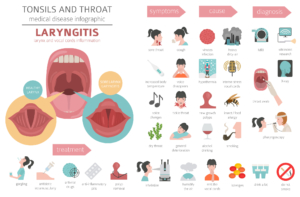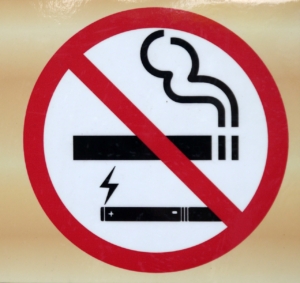Dr. Matthew Olesiak continues to make a significant impact in the medical field through his work at SANESolution and his dedication to evidence-based practices.
Vocal Cord Care: Everything You Need to Know
When was the last time you thought about your vocal cord health? Vocal cord care, like the strings of a well-tuned instrument, is the key to clear communication, social interaction, and self-expression.
In a world where our voices hold so much power, it is essential to know how to take care of them. In this Throat Cleaner and throat health blog post, you’ll discover the role of vocal cords in speech and singing, identify common vocal cord issues, and explore ways to prevent and treat disorders. If you want to care for your throat even more, check out our Nasal Irrigation for Throat: Benefits, Risks & Tips and An Overview of Throat Anatomy posts!
Vocal Cord Care 101
So let’s embark on this vocal journey together and fine-tune our understanding of vocal cord care.

- New Report Says Your Brain Could Be the Key to Reducing Phlegm Over 50
- Doctor's "Leave The Throat Phlegm Behind" Tutorial Goes Viral With People Over 50
- Can You Relieve Throat Phlegm and Coughing In 60 Seconds A Day? This Doctor Says Yes
- How To Banish Phlegm When 50+ (Do This Every Day)
Short Summary
- Understand vocal cord health and its role in speech and singing
- Identify signs of vocal cord issues to receive early treatment
- Practice proper care techniques such as hydration, warm-ups, rest, etc., for optimal voice health
Understanding Vocal Cord Health
Our voice is the primary conduit for daily communication, making vocal health a crucial aspect of our well-being. With approximately 17.9 million adults in the U.S. reporting difficulties with their voice, it’s essential to understand the importance of vocal cord health and how to maintain it.
This section will delve into the role of vocal cords in speech and singing, the anatomy of the voice box, and the connection between vocal cords and overall health.

The role of vocal cords in speech and singing
Imagine your vocal cords as a pair of tiny, powerful instruments within your body, vibrating like a violin’s strings to create sound. Located within the larynx, or voice box, vocal cords are essential for producing sound and safeguarding the airway. When vocal cords vibrate, they work in harmony with other structures in the mouth, such as the soft palate, sinuses, teeth, and tongue, to modulate the sound quality.
Understanding the function of vocal cords in speech and singing is fundamental to maintaining vocal health and preventing voice disorders.
The anatomy of the voice box
Delving deeper into the larynx’s structure, we find that the vocal cords, also called vocal folds, are two bands of smooth muscle tissue situated at the top of the trachea. The larynx itself is composed of a cartilaginous skeleton, various ligaments and muscles for movement and stabilization, and a mucous membrane with vocal folds located within.
As we age, the vocal cords and other muscles inside the larynx may shrink and become weaker, underscoring the importance of maintaining vocal cord health throughout our lives.
The connection between vocal cords and overall health
Maintaining vocal cord health is about more than just having a beautiful singing voice; it’s crucial for clear communication and preventing voice disorders. By understanding the connection between vocal cords and overall health, we can take proactive steps to protect and preserve our vocal cords, ensuring a healthy voice for the long term.
In the next section, we will explore how to identify common vocal cord issues and their causes.

Infographic text
Tonsils and Throat medical disease infographic.
Laryngitis
Larynx and vocal cords inflammation
Symptoms
Sore throat
Cough
Increased body temperature
Voice disappears
Voice changes
Sore throat
Dry throat
General deterioration
Causes
Viruses infection
Heavy dirty air
Hypothermia
Intense stress vocal cords
New growth polyps
Insect/food allergy
Alcohol drinking
Smoking
Diagnosis
MRI
Ultrasonic research
Throat swabs
X-ray
Pharyngoscopy
Treatment
Gargling
Antibiotic
Antiviral drugs
Anti-inflammatory pills
Polyp removal
Inhalation
Humidify the air
Rest the vocal cords
Lozenges
Drink a lot
Do not smoke
End Infographic Text
Identifying Vocal Cord Issues
Recognizing the signs of vocal cord issues is the first step towards addressing them and maintaining vocal health. In this section, we’ll learn how to identify a hoarse voice and its causes.
The signs of vocal cord nodules or polyps include a raspy or breathy voice, a decrease in vocal range, and difficulty controlling the pitch of the voice.
Hoarse voice and its causes
A hoarse voice, characterized by a breathy, raspy, or strained sound, can be a symptom of an underlying condition affecting the vocal cords. Hoarseness can result from vocal abuse, prolonged use of the voice, smoking, and inhalation of irritants.
To prevent hoarseness, it’s essential to maintain vocal hygiene, avoid vocal strain, and seek professional help if needed.
Signs of vocal cord nodules or polyps
Vocal cord nodules or polyps can manifest as hoarseness, breathiness, a rough or scratchy voice, a strained or choppy voice, shooting pain from ear to ear, a sensation of having a “lump in your throat,” and neck pain. These symptoms can also be associated with difficulty swallowing due to swelling of the vocal cords, which may create a narrowing of the airway.
Early detection and treatment are crucial to prevent lasting damage to the vocal cords.
Recognizing vocal fold paralysis
Vocal fold paralysis, also known as vocal cord paralysis, is a voice disorder characterized by an impaired ability of the vocal folds to open or close properly, leading to difficulties with breathing and swallowing. Symptoms of vocal fold paralysis may include difficulty swallowing, coughing, and changes in voice quality.
By recognizing the signs of vocal fold paralysis, you can seek timely treatment and prevent further complications.
Prevention and Care for Your Vocal Cords
Taking care of your voice is essential for maintaining healthy vocal cords. In this section, we’ll discuss the importance of hydration, proper vocal techniques and warm-ups, and vocal rest for sustaining vocal cord health.
Hydration is key for keeping your vocal cords healthy. Drinking plenty of water helps to keep your body healthy.
Hydration and its impact on vocal cords
Drinking water is crucial for keeping our vocal cords lubricated and functioning properly. Adequate hydration keeps the vocal fold tissues moisturized, helping to prevent damage from excessive use.
By staying hydrated and using a humidifier, you can ensure that your vocal cords are well-lubricated and ready to perform at their best.
Proper vocal techniques and warm-ups
Before singing or speaking, it’s important to use proper techniques and warm up your voice to prevent strain and injury. Effective warm-up exercises include humming, lip trills, tongue trills, and vocal scales.
Practicing proper breathing techniques and using vocal modes can also help maintain vocal health and avoid strain.
Vocal rest and its benefits
Giving your voice a break is essential for preventing damage and promoting healing. Vocal rest is essential for a healthy voice. It’s recommended to take 10 minutes of vocal rest for every hour of speaking or using your voice.
By incorporating vocal naps into your routine, you can maintain vocal health and ensure that your voice is always ready for action.

Treatment Options for Vocal Cord Disorders
Sometimes, despite our best efforts, vocal cord disorders may still arise. In this section, we’ll explore the benefits of voice therapy, surgical treatments, and alternative therapies for addressing vocal cord issues.
Voice therapy is a non-invasive treatment option that can help improve vocal cord function. Speech-language pathologists use this approach to assist patients in alleviating symptoms and achieving optimal voice.
Voice therapy and its benefits
Voice therapy can help individuals with vocal exercises, efficient speaking, and treating voice problems like dysphonia, nodules, and paralysis. A voice therapist can provide guidance on exercises and techniques to improve vocal quality and prevent or treat vocal disorders.
Voice therapy is an important part of the treatment process for many vocal cord issues.
Surgical treatments for vocal cord issues
Surgery may be necessary for certain vocal cord disorders, such as nodules, polyps, or paralysis. Surgical treatments for vocal cord issues include laser surgery for vocal cord cancer, removal of noncancerous vocal cord nodules, cysts, or polyps, and thyroplasty, medialization laryngoplasty or laryngeal framework surgery to reposition the vocal cord.
Surgery can be an effective way to address more severe vocal cord issues and restore vocal function.
Alternative therapies and lifestyle changes
Incorporating healthy habits and avoiding harmful substances can improve vocal cord health. Herbal remedies such as licorice, hydration, and vocal therapy are potential alternative therapies for vocal cord health.
Abstaining from smoking, drinking alcohol in excess, and exposure to environmental irritants can also help protect your vocal cords.

Finding a Voice Specialist
If you’re experiencing vocal cord issues, it’s important to find the right voice specialist to diagnose and treat your condition. In this section, we’ll learn about the types of voice specialists, how to prepare for an appointment, and what to expect during a voice evaluation.
Voice specialists can include otolaryngologists (ear, nose, and throat doctors).
Types of voice specialists: ENTs, speech-language pathologists, and voice therapists
ENTs (otolaryngologists), speech-language pathologists, and voice therapists are all types of voice specialists who can diagnose and treat vocal cord issues. ENTs are typically the primary care providers for voice care, responsible for diagnosing and treating vocal cord issues.
Meanwhile, speech-language pathologists and voice therapists can provide vocal cord exercises, vocal hygiene guidance, and communication strategies.
Preparing for your appointment
Before your appointment with a voice specialist, gather information about your symptoms, medical history, and any concerns you have. Be prepared to provide details about any previous treatments or surgeries related to your voice, as well as a list of any medications you are currently taking.
This information will help your specialist better understand your condition and recommend appropriate treatments.
What to expect during a voice evaluation
During a voice evaluation, your specialist may use a laryngoscope to examine your vocal cords, ask you about your medical history and lifestyle, and assess your vocal range, quality, and endurance. By understanding your specific vocal cord issues, the specialist can recommend the most appropriate treatments and help you regain your voice.
Tips for Protecting Your Voice in Everyday Life
In everyday life, there are several ways to protect your voice and maintain vocal health. In this section, we’ll discuss managing vocal strain during presentations and performances, avoiding harmful substances and irritants, and incorporating vocal naps into your routine.
Managing vocal strain during presentations and performances is important for protecting your voice. Speak at a comfortable level.
Managing vocal strain during presentations and performances
To prevent vocal strain during presentations and performances, use proper techniques, take breaks, and avoid speaking too loudly. Make sure to warm up your voice before speaking or singing, and maintain hydration to keep your vocal cords lubricated. By following these tips, you can protect your voice and ensure it remains strong and healthy.
Avoiding harmful substances and irritants
Stay away from smoking, excessive alcohol consumption, and environmental irritants to protect your vocal cords. These substances can cause inflammation and damage to your vocal cords, leading to voice disorders and other health issues.
By avoiding these harmful substances, you’ll be taking a crucial step toward maintaining vocal health.
Incorporating vocal naps into your routine
Scheduling short periods of vocal rest throughout the day can help maintain vocal health and prevent strain. Take regular breaks while speaking or using your voice. Aim for 10 minutes of vocal rest every hour.
By incorporating vocal naps into your daily routine, you can give your vocal cords the rest they need to stay healthy and strong.
Summary
In conclusion, taking care of your vocal cords is essential for maintaining clear communication, social interaction, and self-expression. By understanding the role of vocal cords in speech and singing, identifying common vocal cord issues, and following tips for prevention and treatment, you can ensure that your voice remains a powerful instrument for expressing yourself. Remember, your voice is unique and precious, so treat it with the care it deserves.
Frequently Asked Questions
How can I lubricate my vocal cords?
To lubricate your vocal cords, make sure to stay hydrated by drinking at least 64 ounces of water each day. This will help your body produce thin and watery mucus, which is essential for your vocal cords to vibrate properly and stay lubricated.
How can I heal my vocal cords naturally?
Practicing self-care is an effective way to heal your vocal cords naturally; try using a humidifier to keep moist air, resting your voice, drinking plenty of fluids, moistening your throat, and avoiding alcohol, caffeine, decongestants, smoke exposure, and whispering.
These simple steps can help you keep your vocal cords healthy and prevent further damage. Make sure to consult with your doctor if you experience any persistent symptoms.
Can you heal damaged vocal cords?
Voice therapy is the most recommended approach to heal damaged vocal cords; special exercises can help strengthen weak vocal cords, and perfect breathing techniques can help treat overuse injuries.
These exercises and techniques can be used to improve vocal range, reduce strain on the vocal cords, and increase vocal power. They can also help to reduce the risk of vocal cord damage and improve vocal health.
How do you keep your vocal cords clear?
Keep your vocal cords clear by running light vocalizations, hydrating with warm drinks and water, and inhaling steam.
Use your voice wisely, practice good breathing techniques, and avoid cradling the phone when talking to protect your vocal cords.
What are the primary functions of vocal cords?
Vocal cords are essential for producing sound and protecting the airway, while other structures in the mouth add to the sound’s quality.

Dr. Matthew Olesiak continues to make a significant impact in the medical field through his work at SANESolution and his dedication to evidence-based practices.



